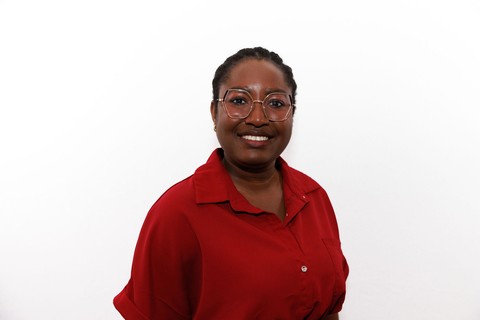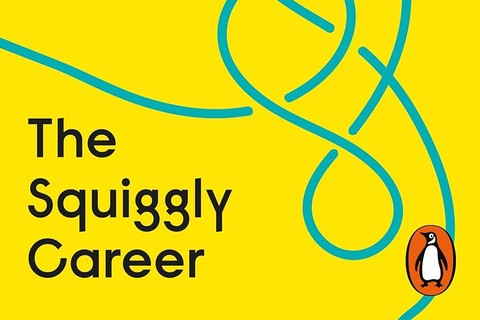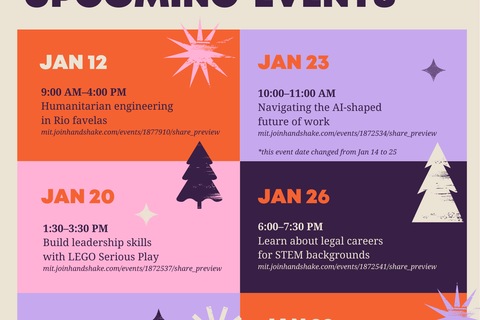Are you an MIT undergrad, graduate students, postdocs, or alumni looking for a full-time job or summer internship in 2026? Are you curious to connect with companies eager to hire MIT talent? Then attend CAPD’s Spring Career Night!
Registration open …
Julia Mongo | Office of Distinguished Fellowships
Published by MIT News on January 22, 2026
MIT undergraduate Akorfa Dagadu has been named a Schwarzman Scholar and will join the program’s Class of 2026-27 scholars from 40 countries and 83 universities. This year’s 150 …
Interested in pursuing a Fulbright? Distinguished Fellowships is introducing a new series spotlighting specific Fulbright countries and the Fulbright program’s spirit of international educational exchange.
In these informal, in-person sessions, you can chat with a visiting Fulbright Scholar or Fulbright …
Helen Tupper and Sarah Ellis, hosts of The Squiggly Career, are coming to campus on Friday, February 27th to lead two workshops on professional development for graduate students.
Session 1: 10 – 11:30 am (RSVP link)
Session 2: 1:30 – …
CAPD will support you to find help in navigating careers and opportunities through January IAP career exploration events. These resources are designed to help you explore different paths, build confidence, and prepare for future opportunities.
Learn more and register for …
The Sundance Institute and Adobe are teaming up to find the next 10 Sundance Institute Ignite x Adobe Fellows. Submit a one- to 15-minute short that shows us your artistic vision and unique voice as a filmmaker.
Deadline for submission …






